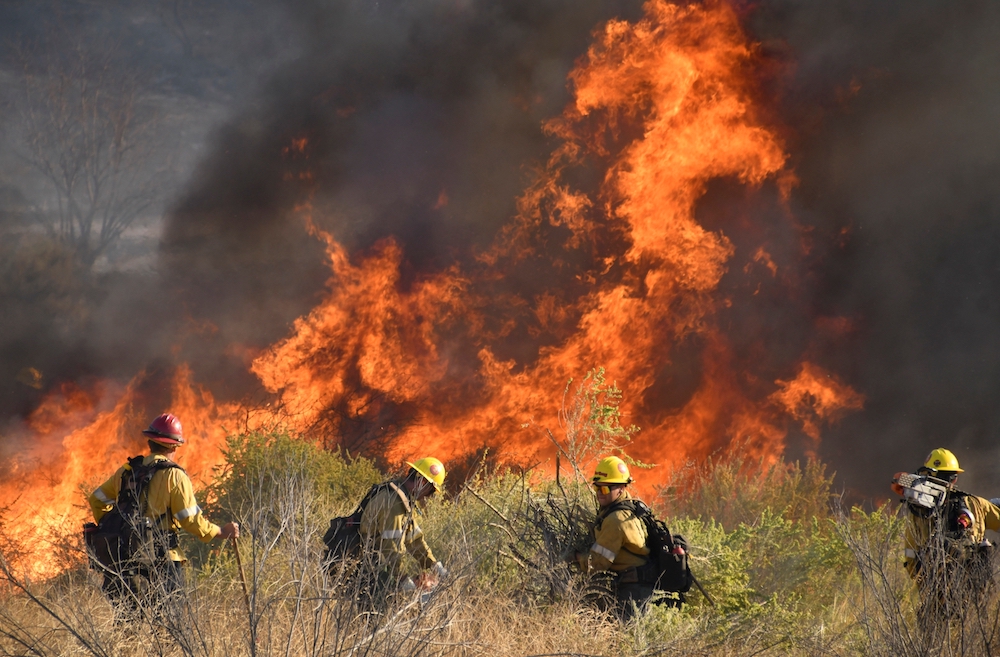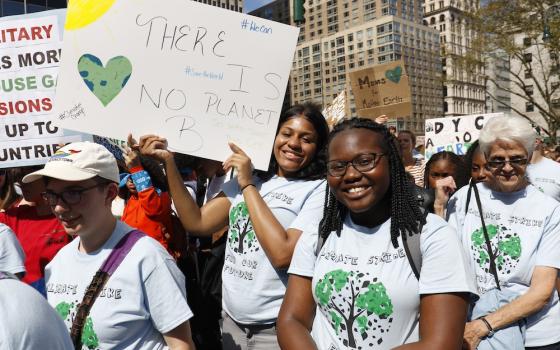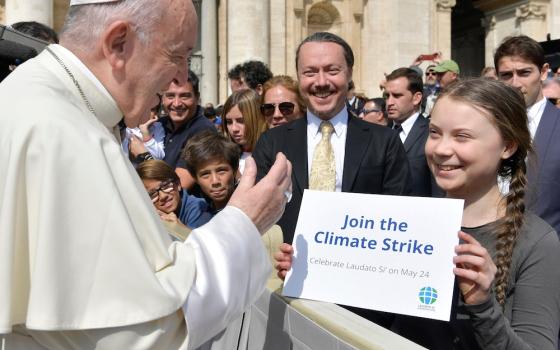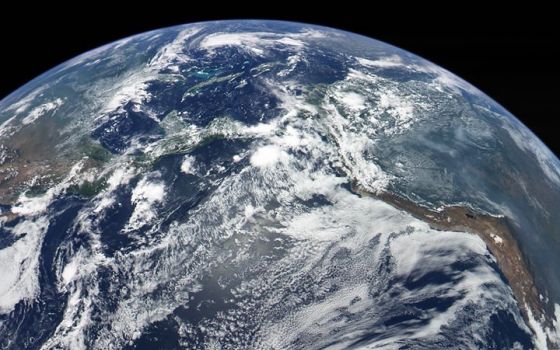
Firefighters battle a wind-driven wildfire in Canyon Country near Los Angeles in October 2019. (CNS photo/Gene Blevins, Reuters)
Editor's note: In his Lenten "Reflections on the Care of Creation," Fr. Emmet Farrell examines our impact on the planet and our responsibility, as people of faith, for our common home. Sign up here to receive Fr. Farrell's reflections in your inbox every Monday, Wednesday and Friday from Feb. 17 to April 2.
See:
Our world is aflame. Last year, more than 58,250 wildfires in the U.S., 40% of them in California, burned an area larger than Maryland and Delaware combined. Since 2000, an average of more than 70,000 fires a year have charred an average of 7.1 million acres annually — an area larger than Massachusetts.
Wildfires near Athens, Greece, that began during a heat wave in mid-2018 had killed more than 100 people by the following March. In recent years, fires have burned across landscapes in Australia, the United Kingdom, Denmark, Estonia, Finland, Latvia, Malta, the Netherlands, Poland, Germany, the Amazon and Congo basins, and the Arctic. Scientists say those fires are aggravated by rising global temperatures, which have shattered records around the globe.
Fires may get the most media attention, but they are not the only sign that our planet is becoming a hothouse. Deadly heat waves have also become more common. In Japan, a month-long heat wave in mid-2018 claimed more than 1,000 lives. Extreme heat is most likely to affect elderly people and those living in poverty, who cannot afford air conditioning, as well as those living in countries where air conditioning is not common.
As parts of the world become unbearably warm in the coming decades, or as water sources in those places dry up, experts say people are likely to migrate toward places where average annual temperatures are in the 50s to 60s Fahrenheit. That will create new pressures on cities in those places and could mean turning areas that are now permafrost into farmland.
Judge:
Climate change is a global problem with grave implications: environmental, social, economic, political and for the distribution of goods (Laudato Si', 25).
There is but one creator. As travelers on this globe together, we are dependent upon Earth for our sustenance. … We must understand what it means to respect all that God has created and to be our neighbor's keepers. … Further, as human beings we are surrounded by and live in an environment we call air. It is in us as well as around us. When it is poisoned and polluted (Isaiah 24:5-6), all creation is harmed (American Baptist Churches USA, Resolution on Global Warming, 1991).
Act:
- If your diocese has a diocesan climate action plan, read it and decide what steps you will take with your family or faith group to help put it into practice. If your diocese does not have one, read another plan, like the Archdiocese of Atlanta's "Laudato Si' Action Plan," and contact your diocesan creation care or social justice office to encourage them to develop a similar plan.
- Read and reflect on "A Christian Prayer in Union with Creation," found at the end of Pope Francis' encyclical "Laudato Si', on Care for Our Common Home."
- With your family or faith group, read the new ecumenical and interreligious guidebook on care for our common home and choose an action to carry out during Lent.
Sign up to receive emails for the Lenten "Reflections on the Care of Creation" series.
Advertisement






